Bikezilla Interview with James Stout – Part 3
Life on Team Type 1
Bikezilla:
What was your personal performance like while on TT1, not the team’s, but just you?
James Stout:
I was part of the team that won the Race Across America, which is a massive achievement. I won a criterium race, I won a hill climb time trail. I raced Super Week. I raced a ton of races with TT1 in a support capacity and by myself.
More than that we were able to make a huge impact on people with diabetes.
I did a ton of athlete days, where I’d go to speak to kids with diabetes. Speak to adults with diabetes.
I was the only one who was bilingual in Spanish and English, so I did a lot of work in Spanish-speaking communities, where obviously income average is a lot lower than in a lot of white communities.
And that’s as significant an achievement for me, seriously, as winning bike races.
If I can make one kid take a decent approach to their diabetes and not go blind, then that’s waaaaaaaay bigger than putting my wheel across the line in front of another dude.
So, that was massive for me.”
Bz:
What was your position or role on the team, on and off the bike?
JS:
I’d say I was more of a kind of . . . rouleur. I can go well in long races, I can go well in stage races.
Yeah, stage races, longer hillier races. I like it when the weather’s groggy. More of that kind of thing, and certainly the criteriums, I’ve tried some longer time trials. But, longer stuff, rolling terrain, shitty gritty roads.
I come from the United Kingdom, where our roads are just slow and dead. That’s what I’m used to doing.”
Bz:
Within the structure of the community outreach work, did you have a specific role in that, or did each rider or staff member have similar roles?
JS:
For the outreach they’d send ‘round the opportunities. We had to do outreach stuff, and we could volunteer.
I was always really forthcoming in volunteering. Some of the guys saw it as a hassle. But, I loved doing it.
So I was in the vanguard in that respect. I was able to do a lot of the outreach stuff. I never felt it was a burden. I was lucky enough to be able to do a lot of that.
And like I said, with my Spanish-speaking role, there were some things the other guys just couldn’t do.
That was a big part of what I did for the team.”
Bz:
After January, when you couldn’t race any more, were you continuing to do outreach work?
JS:
Yes, I was. Most times at my own expense, to the extent that I didn’t get reimbursed.
Absolutely I was. I continue to do outreach work with diabetic people, here [in Spain – Bz], when I get a chance, because I care.
I wasn’t doing it because it was a sponsor obligation. It wasn’t like I was sitting in the Shimano tent talking to people about how great their gears were.
I was doing this because I don’t want any kid, eighteen years old, to be told, no you can’t, you have to play chess. You know? Bullshit. It’s not true.
I want everyone to know that they can do what they want. Do to that I have to go out and impact them.
So I do that here, now. I’m in Spain, I’m on my own, I have nothing to do with TT1. And if there’s a clinic or a doctor or an endocrinologist who will help me, then I’ll go. Because I really care.
It’s not a sponsor thing, it’s not a professional athlete thing, it’s a James thing.
I won’t stop doing that.”
Bz:
What was your relationship with your teammates? With staff? With managers?
JS:
Really good!
The soigneurs were friends of mine, I got along with the guys who do the warehousing and that kind of stuff, with my teammates. We talked often and still do.
If you look at my Twitter you can see that back and forth between me and a lot of the boys. They still email me to see how I’m doing. I’ve stayed with my teammates and babysat their children.
Even now they say, ‘When you come back you’ll visit? You won’t be a stranger?’
They’re my friends. They’re my good friends.
I presume Phil terminated my contract. He certainly doesn’t seem to want to be my friend any more. So, I’m not sure I can consider him a close friend anymore.
Aside from that, everyone I met through TT1 I would consider a friend. If I bumped into them on the street I’d say hello.”
Bz:
Were there any you were particularly close to?
JS:
Bob Schrank, Dan Schneider, Jeff Bannink, Adam Driscoll.
Those guys were like . . . I staid with Jeff for two weeks and he left his kids with me. You don’t do that unless you trust someone, right?
Some of the best friends I have.
Bob and Dan came and stayed with me this January in San Diego. I stayed with Bob before. Danny just sent me a care package of granola and peanut butter, because you can’t buy it in Spain.
I’m really close to those guys.”
Bz:
Any you were particular NOT close to?
JS:
Not really. There was no one I didn’t get on with.
I’m a really firm believer that you shouldn’t go through life leaving a trail of enemies behind you. So, I try my utmost to . . . if someone isn’t my friend, then they’re just not my friend. They’re not necessarily my enemy.
There’s no one who I would say I clashed with.”
Bz:
It must bother you on a personal level, the way things have gone bad?
JS:
Yeah, it bothers me a lot on a personal level. I took a real hit.
Only through working with Martin and Bruce [James’ therapist – Bz], he’s been helping with it on a personal level and just coming through it with my head screwed on right.
On a personal level at first, it kicked me in the balls. I thought all my friends wouldn’t want to know me anymore. I thought someone would tell them something bad, or that I had done something terrible. But, credit to them, they’ve all taken the time to contact me and say, ‘Hey man you’re still my friend.’
That means a lot. That means a lot to me.”
Bz:
TT1 did not pay you for five months. Didn’t pay anything at all? Only paid part of what was owed?
JS:
Nope, nothing. Absolutely zero. When I say not one penny, I mean not a single penny.”
Bz:
What about the insulin? Was that an instant cutoff? Or was it gradual?
JS:
No, that was, ‘From date X we will no longer be giving free insulin to TT1 members.'”
Bz:
So that wasn’t just you? It was the entire team?
JS:
It was only the people who weren’t getting paid. Because if you’re getting paid, you have health insurance.
If you’re not getting paid, you don’t have health insurance.”
Bz:
People who had insurance had to get insulin through their insurance after this?
JS:
Right. Correct. Which wasn’t a problem.”
Bz:
Which other riders were having problems with their visas? How many of you were there?
JS:
I shouldn’t comment on other people’s visa situations.
And I don’t know if they all weren’t getting paid or not. We never discussed that.”
Bz:
When they did finally terminate your contract, it wasn’t over performance at all, but because of a tee shirt you wore to a party and a comment you made in your tweets?
JS:
The reason they fired me was that I wore a tee shirt with the word ‘penis’ on it, and I retweeted something from Al Jazeera.”
Bz:
I think I remember seeing that. In the retweet you commented “no shit” or something like that.
JS:
Yes, that’s it. That was considered sufficient to terminate my contract.”
Bz:
Had you butted heads with anyone on issues like this previously?
JS:
I’d never heard of anything like that happening previously, and they’d never spoken to me about anything like that.
I received a warning when I wore the tee shirt that said ‘penis’ and then my contract was terminated for twittering Al Jazeera.”
Bz:
It feels like there’s some amount of malice behind a lot of what happened to you and they way the situation was manipulated.
JS:
It does.
And it seems like I’m hiding some reason that they would hate me. If I am, then I’m hiding it from myself, because I just don’t know why. I don’t know what I did. I don’t know who I offended. I don’t know what I did wrong.
That’s what upset me the most. Because no one will tell me.
I mean wearing a tee shirt that says ‘penis’, it’s bullshit. It’s a drummed-up excuse of the worst kind, and an insult to my intelligence if they think I’d believe that’s a reason for terminating my contract.
But I don’t know what else I did.”
Bz:
They claim that the tee shirt incident happened at a company event, but that was actually at a friend’s party and not related to work?
JS:
That’s correct, it wasn’t at a TT1 function.”
Bz:
Was your health or your life ever in jeopardy due to lack of medication
JS:
Well, yeah, as I said, a week without your insulin and, as a diabetic, you’re about to go blind. A month without insulin and you’ll die.
You can look up the effects of lack of insulin in Type 1 diabetics very easily on line, on Wikipedia or something and get more information
Yes. If you don’t have insulin you’re life is very much at risk.”
Bz:
Ok, what about team ethics? This is a team that makes a very big deal of helping people with diabetes, of promoting proper care, treatment and testing. How do their actions toward you and toward Willem Van den Eynde mesh with the presumption that their mission is to help diabetics?
JS:
I have to say that it’s changed my conception of what their mission is, quite a lot. It doesn’t speak volumes about our mission to help people with diabetes.”
Bz:
How do they outreach to kids in Hispanic neighborhoods, then deny members of their own team medication?
JS:
I wish I knew what the moral equivalent was there. I wish I could understand how that tallies. I’m afraid I can’t explain it, because I don’t understand it.”
Bz:
It seems to be the antithesis of what TT1 stands for, but I guess there’s a lot of money to be had from public sympathy.
JS:
I’m entirely in agreement with you.”
Bz:
At first I thought, well, maybe this is their way of maintaining control of people. But looking at it deeper, they didn’t really seem to be controlling you so much as simply shoving you down in the dirt.
JS:
Yeah, it wasn’t a control thing, it was just a kind of, ‘We just want you to go away now’. And I don’t know why, like I said.
I was training my ass off, I was constantly emailing them, ‘Here’s what I’m doing. How’s stuff with you?’ I was very communicative. I tried my best to be the model athlete.”
Bz:
Aside from this specific situation, what is the management system and the broader system of rewards and punishments like on TT1?
JS:
There wasn’t really a system of rewards and punishments.
People split prize money if you won races. Sometimes the issue was with organization, with getting stuff where it needed to be on time, and things were often delayed and such. But, I wouldn’t know how things ran on any other teams. So I wouldn’t know how to compare.”
Bz:
Did UCI have any hand in or knowledge of the situation and the conditions at TT1? Were they aware?
JS:
They are aware of it, now.”
Bikezilla Interview with James Stout – Part 4:
Life Goes On
Bz:
I read that your type of diabetes isn’t “normal.” Sometimes your pancreas produces insulin and sometimes it doesn’t. So proper monitoring is even more critical?
JS:
That’s correct, yeah. I’m very brittle about that, so I have to do a lot more testing than most diabetics.
My diabetes came on late and my pancreas still sometimes kicks back with insulin. Which can be really dangerous. In the middle of the night it could kick out a huge insulin bonus and I could die in my sleep.
I have to make sure that I’m always aware of what my blood-sugar is.”
Bz:
If you can’t monitor correctly and you have a surge of insulin, you could experience what they call a “hypo” (low blood-sugar) severe enough that you could die?
JS:
That’s a hypo, yup, and that could happen to me, as it could to any diabetic, without monitoring.
But that’s a side effect of too much insulin without proper monitoring.”
Bz:
Like if you took your insulin, then your pancreas kicked back in, and suddenly you have an unanticipated surge of insulin and an unexpected rapid drop in blood-sugar? Is that how it works?
JS:
That’s correct, yeah. That’s something that more or less unique to my type of diabetes.
So I have to make sure I have sugar with me all the time.
I don’t have the luxury of not planning to always have . . . I always have a bag. Unless I’m riding, then I have gels in my pocket.
But I can’t think, oh, I’m going to do a ride for five hours, I need 200 calories per hour so I need a thousand calories. I better have 400 extra, just in case something goes wrong.
If I’m going for a walk, or I’m going to a cafe, I have my bag with two or three Dextrogels. I can never be apart from it.”
Bz:
Are you in school now?
JS:
No. Ph.D studies aren’t like undergraduate studies. The credits don’t transfer. So eventually I’d like to get back to the U.S.”
Bz:
Are you riding for a team right now?
JS:
Yes, I’m riding for Team Traveler right now. They’ve been kind enough to connect me with some kits and a bit of money. But it’s by no means a pro team.
They’ve been really helpful in helping me get what I need to keep racing while I’m here.
I’m very grateful to them.”
Bz:
I’ve heard that the UK’s cycling federation is heavily slanted against riders in any disputed matter. Have they been more hindrance than help?
JS:
The British federation hasn’t been very helpful.”
Bz:
What of UCI’s role? Have they helped you at all?
JS:
They have not returned any of the emails. So, no, in a word. They’ve chosen not to respond.”
Bz:
Did anyone, other than Martin Hardie, or any group, advocate for you? IS there someone or some entity that normally would advocate for a rider under these circumstances or generally when there is difficulty for a rider with a team? Are you doing this all on your own?
JS:
Apart from Martin and Bruce, and all the people Martin has connected me with, there’s my friends. My friend, Danna, who I spend a lot of time with here in Catalonia, people who give me advice, they’ve been great. But, in an official capacity, just Martin and the JD foundation that he’s a part of.
Bz:
Now that you’re riding for Team Traveller, have you started racing again?
JS:
Yeah, but when you haven’t raced and hardly slept for three months you really don’t have much form. But I’m getting back.
I’ve been racing in France, I’ve been racing in Spain, been racing in Belgium.
I just want to salvage something out of this season. I like racing my bike. I want to race my bike.”
Afterword
For me, this story began with James Stout. But it clearly extends well beyond James and even beyond Willem Van den Eynde. There are others. We know of some of them, but none except James have been willing to step forward. Fear keeps them silent.
What concerns me is that as with crimes centered on abuse, whatever does get reported, whatever may see the light of day, is almost always just the proverbial tip of the iceberg.
So, I wonder, how many more like this are there? And will any of them take some measure of courage from James and step forward themselves?
~ Bikezilla



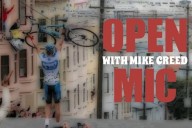



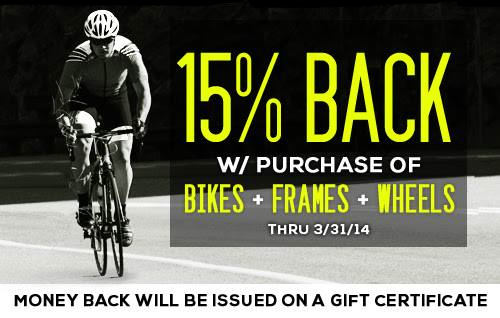

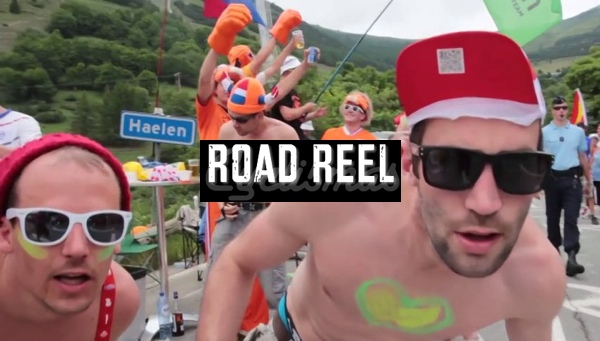
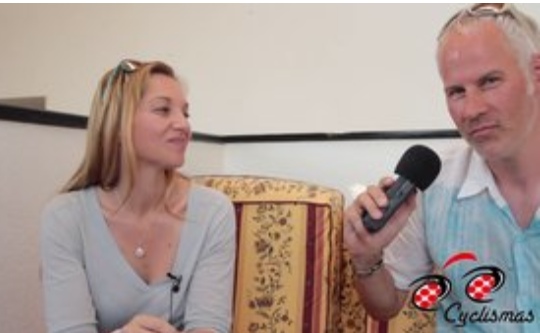
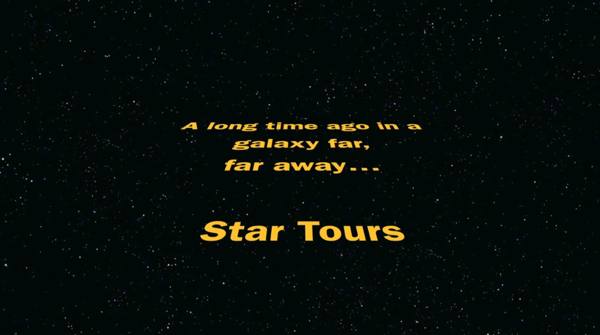
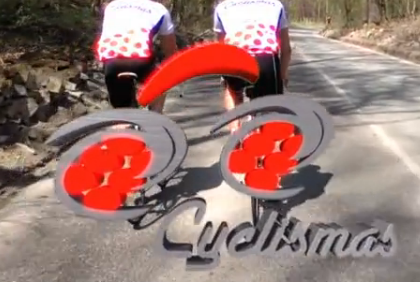

No Comments